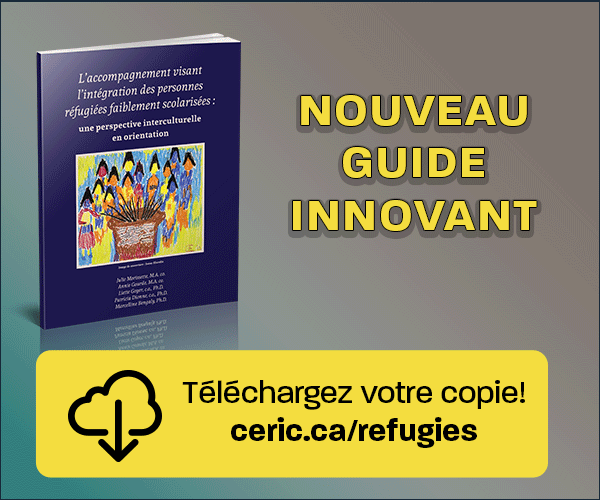Dix ans plus tard – les décrocheurs scolaires dans une communauté insulaire isolée
Mots-clés :
les sortants de l'école, île lointaine, communauté, australie, ruralRésumé
Les étudiants de collège aînés dans les communautés rurales font face à la question “où allons-nous à partir d’ici ?” Dans de petites écoles dans les régions isolées d’étudiants d’aîné d’Australie et de Canada doivent souvent émigrer à de plus grands centres pour s’inscrire aux dernières années de collège pour entreprendre le post-enseignement secondaire ou chercher l’emploi. La question “où nous allons à partir d’ici” a été examiné par un des auteurs dans une école rurale dans Queensland, l’Australie avant que les deux autres auteurs ont considéré ses implications dans un collège lointain dans le Terreneuve et le Labrador. Dix ans après le fait de sortir 34 étudiants d’un collège canadien rural ont été contactés (d’une classe obtenante le maîtrise de 62) et étudiés par le questionnaire des influences importantes sur leur poste secondaire éducatif et choix de carrière. La signification du problème d’étudiants ruraux cherchant à comprendre le monde non-local avant le fait d’y émigrer avait beaucoup d’implications pour leurs chances de vie. Cette édition éducative rurale a des implications pour l’éducation de pré-service d’enseignants futurs.
Références
Abbott-Chapman, J. (2001). Rural resilience: Making a life in regions of high unemployment, Youth Studies Australia, 20 (3), 26- 31.
Bell G. (1987). Circumstances Surrounding Career Decision Making For Most Rural Students” In Reeves D.T. (ed), Working Together: Rural Communities and
Education, Fremantle, Society for the Provision of Education in Rural Australia
Boomer G. (Chair) (1987). Schooling in rural Australia: Report to the Commonwealth Schools Commission, Curriculum Development Centre, Canberra.
Chenoweth, E. & Galliher, R.V. (2004).Factors influencing college aspirations of rural West Virginia high school students, Journal of Research in Rural Education, 19 (2). http://www.umaine.edu/jrre/archive/19-2.htm
Chote, J., Cunningham, R., AbbottChapman, J., Hughes, P. (1992). Rural disadvantage and post compulsory participation: parents’ views of school and work, Hobart, Youth Education Studies Centre, University of Tasmania.
Commission of Inquiry into Poverty in Australia, Poverty and education, (1976). Canberra, Australian Government Publishing Service.
Commission of Inquiry into Poverty. (1978). School, community and work: urban and rural aspects, Canberra, Australian Government Publishing Service.
Commonwealth Schools Commission. (1975). Report for the triennium 1976-78, Canberra, Australian Government Publishing Service.
Commonwealth Schools Commission. (1987). Schooling in rural Australia, Australian Government Publishing Service, Canberra.
Employment and Immigration Canada. (1989). Canadian classification and dictionary of occupations. (Eight Edition). Ottawa, Canada: Minister of supply and services Canada.
Golding, B. (2001) Great divides in learning: youth pathways in rural and remote Australian towns, ACER, Corporate Communications.
Henry, M. (1989).The functions of schooling: perspectives from rural Australia, Discourse: The Australian Journal of Educational Studies 9 (2), 5-21.
James, R., Wyn, J., Baldwin, G., Hepworth, G., McInnis, C & Stephanou, A. (1999). Rural and isolated school students and their higher education school choices, Canberra, National Board of Employment, Education and Training, Higher Education Council.
McGaw, B., Warry, R. S., Varley, P. & Alcorn, J. (1977), Prospects for school leavers, in Commission of Inquiry into Poverty - School leavers: Choice and opportunity,
Australian Government Publishing Service, Canberra.
SPSS Inc. (2005). SPSS for Windows Version 13.0, Chicago: SPSS Inc.
Stevens, K.J. (2003). Virtual educational structures and processes for the management of knowledge between sites in sparsely-populated regions, In Stewart Marshall & Wal Taylor (eds). Information technology in regional areas, Central Queensland University, Rockhampton, Australia, 386 -392.
Stevens, K.J. (1998). Rural education, policy and teaching, [Second Edition], In Elizabeth Hatton (ed). Understanding teaching: curriculum and the social contexts of schooling, Sydney & London, Harcourt Brace & Co. 389 – 400.
Stevens, K. J & McSwan, D. (1995). Post-secondary school educational and vocational issues facing families in rural North Queensland - a note on research in progress, Education in Rural Australia 5 (1) 45 – 46.
Stewart, A.E. (2003). Post school outcomes for ‘the island’ students and their views on place and identity: year 10 to year 11 in a rurally remote area, PhD Thesis, Hobart, University of Tasmania.
Tucker, C. (1999). Where do we go from here? the aspirations and expectations of the graduating class in a rural island high school: science curriculum,
information technologies, parental, community and other factors of influence, for the degree of Master of Education, Memorial University of Newfoundland, Canada, xvi 254p.
Tucker, C. & Stevens, K.J. (1999). Where do we go from here? post high school educational and inquiry into curriculum and instruction 1(3) (Summer) 22-24.
Wyn, J. (1988). Young people and the transition from school to work: new agendas in post-compulsory education and training, In J.Bessant & S. Cook (eds) Against
the odds: young people and work, Hobart, Australian Clearing house for Youth Studies.

Téléchargements
Publié-e
Comment citer
Numéro
Rubrique
Licence

Cette œuvre est sous licence Creative Commons Attribution - Pas d'Utilisation Commerciale - Pas de Modification 4.0 International.











